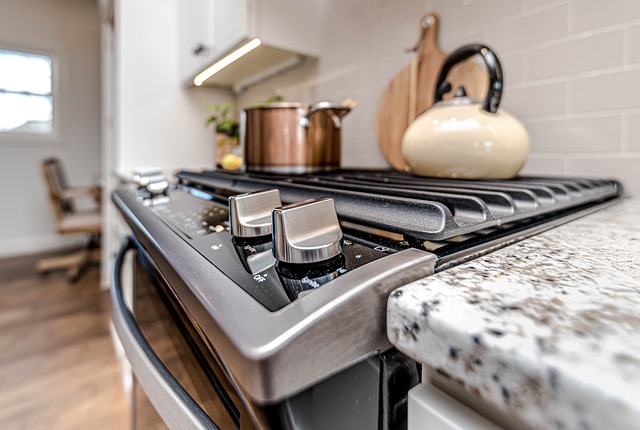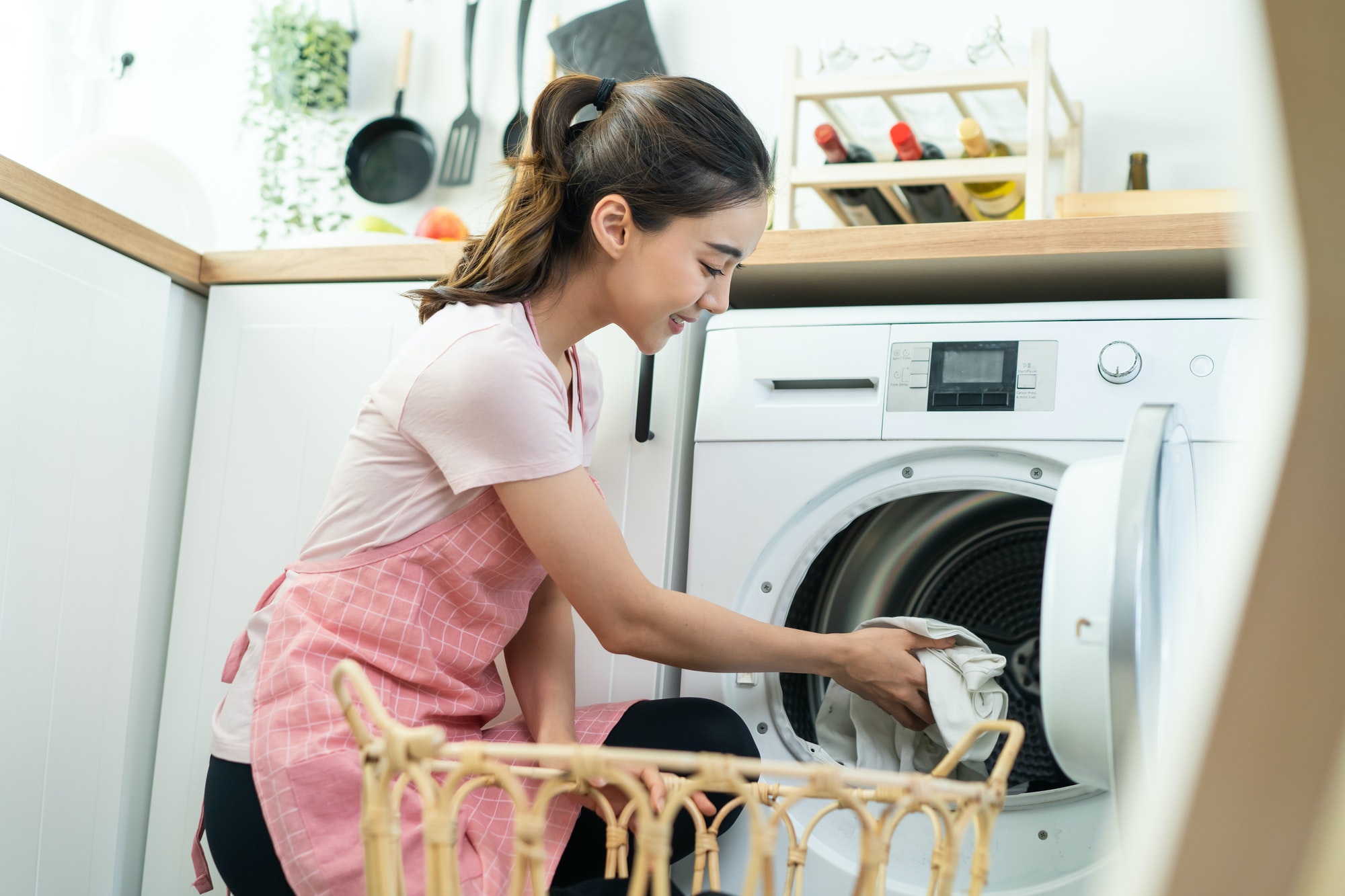Home appliances have become essential to our daily lives, making chores easier and saving time. From dishwashers to refrigerators, washing machines to ovens, these appliances help keep our households running smoothly. But what happens when one of these critical machines malfunctions? Finding a skilled and trustworthy technician becomes a priority. The process of choosing the right home appliance repair service can be overwhelming, especially with so many options available.
In this guide, we’ll explore everything you need to know about selecting the right appliance repair technician. We’ll cover the key qualifications and skills you should look for, tips for vetting professionals, common pitfalls to avoid, and how to ensure your repair experience is stress-free.

Why Choosing the Right Technician Matters
A malfunctioning appliance can disrupt your daily routine. Whether it’s your refrigerator, washer, or microwave, having it repaired efficiently and correctly is crucial. Choosing an unqualified technician can result in poor service, additional costs, or even damage to your appliance.
Ensuring you hire the right person for the job will:
- Save you money: An expert technician can accurately diagnose the problem and offer a long-lasting solution, preventing further damage.
- Ensure safety: Faulty appliances, especially those involving electricity, gas, or water, can pose safety hazards. A trained professional will know how to handle these risks.
- Prolong appliance life: Proper repairs will extend the lifespan of your appliance, meaning fewer replacements and lower long-term costs.
Key Qualities to Look for in a Home Appliance Repair Technician
Not all appliance repair technicians are created equal. When it comes to trusting someone with expensive household equipment, there are several factors to consider. Here’s what you should look for:
Proper Certification and Licensing
One of the first things to verify is that the technician holds the necessary certifications and licenses to perform appliance repairs. Certification often indicates that the technician has undergone formal training and is qualified to work on certain types of appliances.
- Certified Technicians: Some common certifications include the National Appliance Service Technician Certification (NASTeC) or factory certifications from specific appliance manufacturers. This guarantees that they have the proper knowledge to fix specific brands.
- Licensed: In most areas, technicians are required to be licensed to perform repairs legally. Licensing varies by region but typically ensures that the individual has met minimum requirements for safety and expertise.
Experience and Expertise
Experience counts for a lot when it comes to diagnosing and repairing home appliances. Technicians with a history of working on different brands and models will be better equipped to handle a variety of issues.
- Years in Business: Ask how long the technician or repair company has been in operation. Generally, a longer track record suggests reliability.
- Specialized Knowledge: Some technicians specialize in certain types of appliances, such as refrigerators or washing machines, while others may have more general expertise. Choose a specialist if your issue requires a higher level of expertise.
Good Reputation
In the age of online reviews and recommendations, it’s easier than ever to assess a technician’s reputation. Customer reviews can give you insight into their service quality, punctuality, and professionalism.
- Online Reviews: Look at customer reviews on platforms like Google, Yelp, or Angie’s List. Pay attention to both positive and negative feedback. Is there a recurring pattern of complaints, such as poor communication or overcharging?
- Word of Mouth: Personal recommendations from friends, family, or neighbors can be valuable. Ask around to see if anyone has had a positive experience with a local technician.
Warranty and Guarantee
A reputable appliance repair service should stand behind its work. Most technicians or companies will offer a warranty on their repairs, ensuring that if the appliance breaks down again within a certain timeframe, they will fix it at no extra cost.
- Repair Warranty: Typically, warranties cover parts and labor for a specific period, such as 30, 60, or 90 days. Ask about the specifics of the warranty before hiring.
- Manufacturer’s Warranty: If your appliance is still under the manufacturer’s warranty, check whether the technician is authorized to perform repairs under that warranty. Unauthorized repairs can sometimes void your coverage.
Transparent Pricing
Before hiring a technician, it’s important to understand their pricing structure. Some repair services charge a flat rate, while others charge by the hour. In either case, transparency is key.
- Written Estimate: Reputable technicians will provide a written estimate before starting the job. This should include labor costs, part replacement costs, and any other fees.
- No Hidden Charges: Beware of technicians who quote a low price initially but then tack on unexpected fees later. Always ask for clarity on pricing upfront.
Availability and Responsiveness
Time is of the essence when it comes to appliance repairs, especially if you’re dealing with an essential item like a refrigerator or oven. You’ll want a technician who can address the issue promptly.
- Emergency Services: Some technicians offer emergency or same-day services for urgent repairs. Check if they provide after-hours services or if they can accommodate your schedule.
- Communication: How easy is it to get in touch with the technician or company? Do they respond promptly to calls or emails? Efficient communication is a sign of professionalism.
Insurance Coverage
Accidents can happen, even with the most skilled technician. Ensuring that your chosen appliance repair professional is properly insured protects you from liability.
- Liability Insurance: This covers any damage the technician may accidentally cause to your home or appliance during the repair process.
- Worker’s Compensation Insurance: If the technician is injured while working on your property, this insurance will cover their medical expenses and lost wages.
Diagnostic Skills
Sometimes, an appliance issue isn’t as straightforward as it seems. A qualified technician must have strong diagnostic skills to accurately identify the root cause of the problem.
- Comprehensive Inspection: A skilled technician will perform a thorough inspection of the appliance before determining the exact issue. They will not rush to a conclusion without testing and verifying the problem.
- Troubleshooting Ability: Some issues are more complex than others, involving multiple components. A technician with good troubleshooting skills will methodically go through the possibilities to ensure the correct fix is applied.
Access to Genuine Parts
When your appliance needs a replacement part, using genuine, manufacturer-approved parts is essential for both performance and safety. Make sure the technician has access to these parts.
- OEM Parts: OEM (Original Equipment Manufacturer) parts are made by the same company that produced your appliance. These parts are designed specifically for your machine and are of higher quality than generic parts.
- Supplier Network: Experienced technicians often have a well-established network of suppliers, enabling them to get genuine parts quickly and at a reasonable cost.
Customer Service and Professionalism
Good customer service goes beyond simply repairing your appliance. It encompasses the entire repair experience, from initial contact to post-service follow-up.
- Politeness and Respect: The technician should treat you and your property with respect, arriving on time and maintaining a clean work environment.
- Clear Explanation: A good technician will explain the issue, the steps required to fix it, and any preventative measures you can take to avoid future problems.
- Follow-Up: Some companies will call after the repair to ensure the appliance is working properly and that you’re satisfied with the service.
Steps to Take Before Hiring an Appliance Repair Technician
Now that you know what qualities to look for in a technician, there are a few key steps you should take before making your final decision. Following these steps can help ensure that you choose the right person for the job.
Research Multiple Options
Don’t settle for the first technician you come across. Research multiple options and compare their qualifications, reviews, and pricing. This will give you a better sense of the average cost and service quality in your area.
Ask the Right Questions
When contacting a repair service, asking the right questions can help you gauge their competence and professionalism. Some questions to consider include:
- How long have you been in business?
- Are you certified or licensed to work on my specific appliance brand?
- Do you offer a warranty on your repairs?
- Can you provide a written estimate?
- Do you use genuine OEM parts?
- What is your availability for emergency repairs?
Verify Certifications and Licensing
Once you’ve narrowed down your choices, ask for proof of certifications and licensing. You can also verify these credentials through local regulatory agencies or the appliance manufacturer.
Request a Written Estimate
Before the technician begins any work, ask for a written estimate that outlines the cost of labor, parts, and any additional fees. Having this in writing can prevent misunderstandings and disputes later on.
Check for Insurance
Always verify that the technician carries liability insurance and, if applicable, worker’s compensation insurance. This will protect you in case of accidents or damage during the repair.
Review the Warranty Terms
Clarify the warranty terms with the technician before proceeding. Know exactly what is covered and for how long, whether it’s parts, labor, or both. Having a warranty in place will give you peace of mind should something go wrong after the repair.
Monitor the Repair Process
During the repair, observe how the technician handles your appliance. Are they careful and methodical? Do they communicate clearly about what they’re doing? A professional technician will welcome questions and keep you informed throughout the process.
Common Pitfalls to Avoid
Even when you do your due diligence, there are some common mistakes that can occur when hiring an appliance repair technician. Here’s what to avoid:
Falling for Low Prices
Cheap rates can be tempting, but they often come at a cost. Some technicians offer low initial estimates but then add hidden fees, or they use low-quality parts that lead to more problems down the line. Always prioritize value over price.
Not Verifying Credentials
Don’t just take a technician’s word for it when they say they’re licensed or certified. Ask to see proof of their credentials, and verify them if necessary. Failing to do this could result in shoddy work or voided warranties.
Ignoring Red Flags
If a technician seems unprofessional, fails to provide a written estimate, or can’t answer your questions clearly, take it as a red flag. Trust your instincts and move on to a more reliable option.
Rushing the Decision
Appliance repairs can feel urgent, especially when it’s something you rely on daily, like your refrigerator or washing machine. However, rushing into a decision without proper research can result in poor service or additional problems.
Conclusion
Finding a trustworthy and skilled home appliance repair technician doesn’t have to be a stressful process. By knowing what qualifications and qualities to look for, asking the right questions, and avoiding common pitfalls, you can ensure that your appliance is in good hands. Whether you’re dealing with a malfunctioning washing machine, a broken refrigerator, or a faulty oven, taking the time to research and select the right technician will save you time, money, and stress in the long run.
Remember, a reputable technician will provide proper certification, a clear written estimate, and a warranty on their work. They will also use high-quality parts, communicate effectively, and handle your repair with professionalism. By following the tips and steps outlined in this guide, you’ll be well-equipped to make an informed decision the next time one of your home appliances needs a repair.
Zuta Appliance Repair: Expert Home Appliance Repair Services for Your Berkeley Kitchen
In the heart of Berkeley, California, Zuta Appliance Repair is your trusted partner for maintaining the functionality and convenience of your home appliances. When one of your essential appliances, like your refrigerator, oven, or dishwasher, malfunctions, it can significantly disrupt your kitchen’s efficiency. That’s why we are committed to providing top-tier repair services for a wide range of home appliances. Whether it’s a broken icemaker or a faulty stove, our expertise ensures your appliances are back to working efficiently, minimizing inconvenience and keeping your kitchen running smoothly. With Zuta Appliance Repair, you’re not just getting a repair—you’re receiving a promise of quality, integrity, and reliability that enhances your kitchen’s performance and peace of mind.
Experience comprehensive solutions to all your home appliance issues with Zuta Appliance Repair. Our specialized services are designed to extend the life of your appliances and restore your kitchen’s full functionality. Our skilled team, equipped with unmatched expertise and a friendly approach, offers cost-effective solutions that deliver long-lasting results. This is more than just a repair service—it’s about restoring comfort and convenience to your home. Choose Zuta Appliance Repair for an improved lifestyle. Contact us now at (415) 592-4633 and let us get your appliances back to being reliable, efficient parts of your daily life, ensuring peace of mind and uninterrupted kitchen convenience.
Disclaimer
The materials available on this website are for informational and entertainment purposes only and not to provide legal or professional advice. You should contact your attorney or home improvement specialist to obtain advice concerning any particular issue or problem. You should not act or refrain from acting based on any content included in this site without seeking legal or other professional advice. The information presented on this website may not reflect the most current home improvement developments. No action should be taken in reliance on the information on this website. We disclaim all liability concerning actions taken or not taken based on any or all of the contents of this site to the fullest extent permitted by law.







